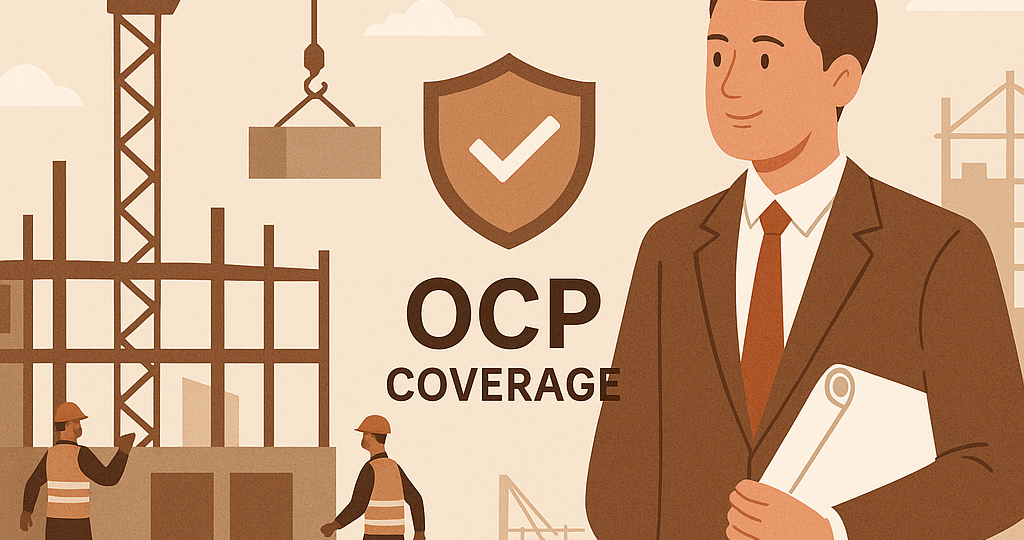
If you hire contractors for construction or renovation projects, you might be risking more than just delays. Accidents, property damage, or injuries caused by contractors can land you in serious legal trouble. That’s where Owners and Contractors Protective (OCP) Liability Insurance comes in—designed to shield you from liability that arises from a contractor’s work and general supervision. Here’s everything you need to know.
What Is OCP Liability Insurance?
OCP liability insurance is a project-specific coverage policy most often purchased by contractors or subcontractors on behalf of a project owner or general contractor. Its primary purpose is to protect the named insured—typically the project owner—from liability related to bodily injury or property damage that results from the contractor’s operations at the designated job site. Unlike general liability policies, OCP coverage is usually written on an occurrence basis, meaning it applies to incidents that happen during the policy period, even if the claim is filed after the work is completed.
Who This Insurance is For
-
Project Owners / Developers who want protection beyond simply being named as Additional Insured under a contractor’s policy. OCP gives primary coverage, reducing gaps.
-
Contractors who need to bid competitively—having OCP in place can make you more attractive if project owners require it. Also, losses under OCP don’t always push up your general liability premiums.
How OCP Differs from General Liability Insurance
| Aspect | General Liability (CGL) Policy | OCP Policy |
|---|---|---|
| Scope | Broad: covers the contractor’s business and operations across many sites & clients. | Narrow: focused on one project, one contractor, one location. |
| Who is Insured | The contractor and possibly additional insureds (including owner). | The project owner (or whoever is named) is the only insured under the OCP policy. |
| Limits Sharing | Shared among all insureds; a loss might affect many parties. | Dedicated limits only for the owner, unaffected by contractor’s other projects. |
When You Need OCP
OCP liability insurance is often required when project contracts specifically mandate it, as many construction agreements and owner-developer contracts now include provisions that call for this type of coverage. It’s also a smart option when the project owner seeks stronger protection than what’s offered by simply being listed as an additional insured on a contractor’s general liability policy. This coverage is particularly valuable for high-risk projects—such as those involving complex construction, heavy machinery, or public access—where the likelihood of injury or property damage is significantly higher. Additionally, OCP insurance is beneficial in situations where liability could arise from the owner’s supervision or oversight of the contractor’s work.
Things to Consider Before Buying
-
Make sure the project location and contractor are clearly specified on the policy.
-
Confirm the policy period matches the project timeline (start → completion).
-
Review exclusions (e.g., off‑site work, completed operations, negligence outside supervision).
-
Ensure that the owner’s acts or omissions in supervision are covered.
-
Understand how deductibles and premiums will be calculated.
OCP liability insurance isn’t a substitute for general liability policies—it’s a targeted supplement designed for specific risk exposures during construction projects. For business owners, developers, and contractors, having OCP in your insurance tool belt offers peace of mind, reduces legal vulnerability, and often meets contractual requirements with clients.
Interested in adding or customizing OCP liability insurance for your next project? Your Insurance Lady can help you assess whether it’s right for your business and find the best policy that aligns with your risks. Contact us today!

